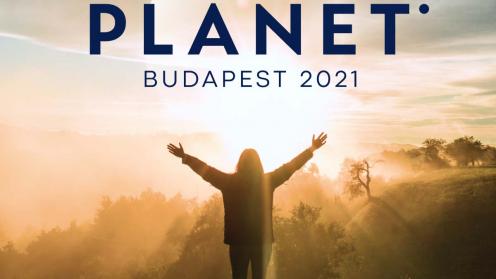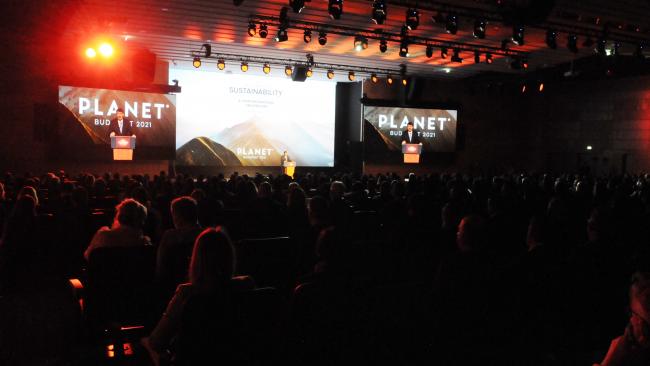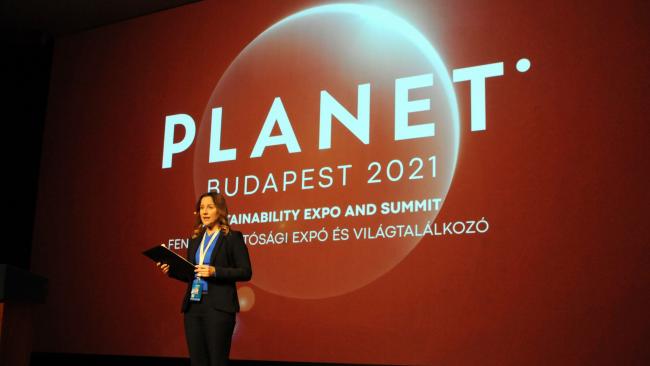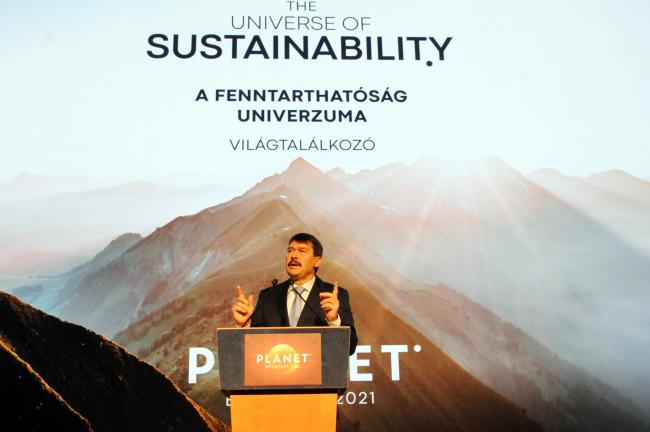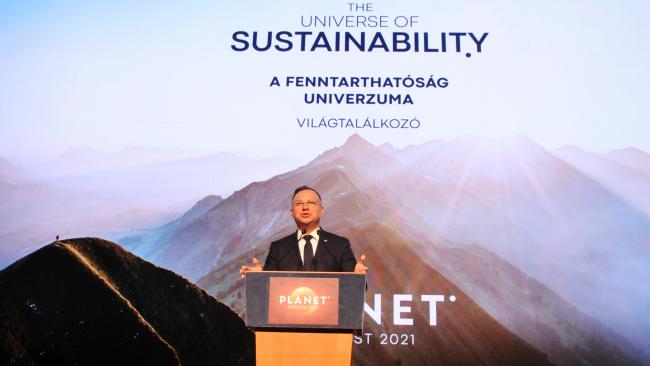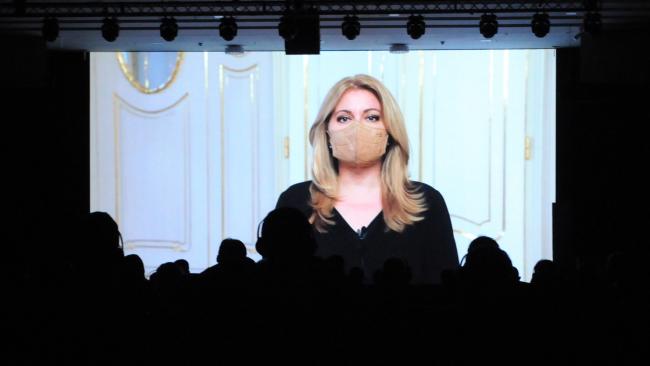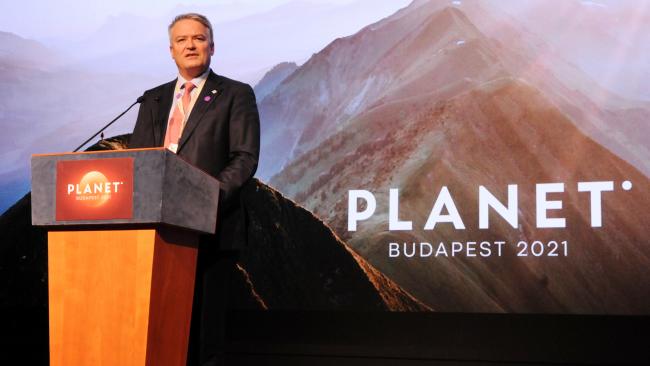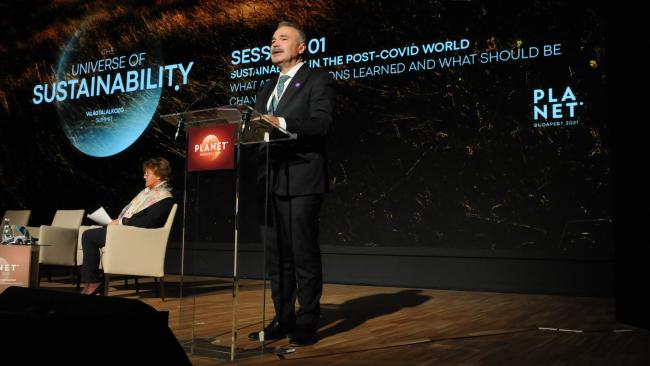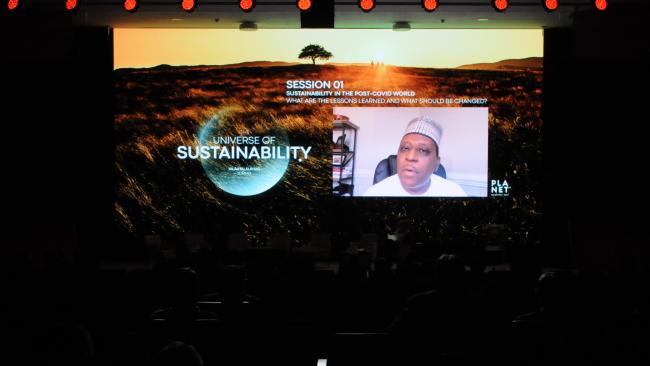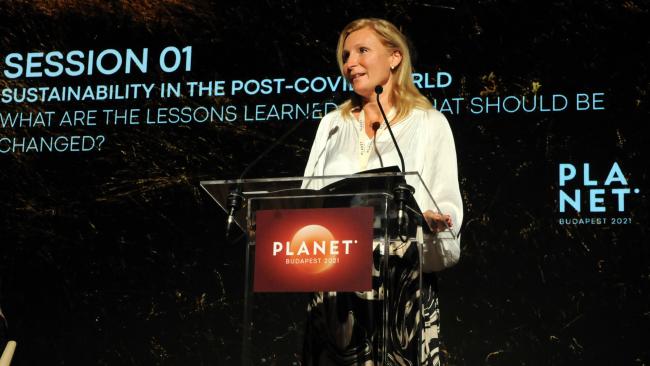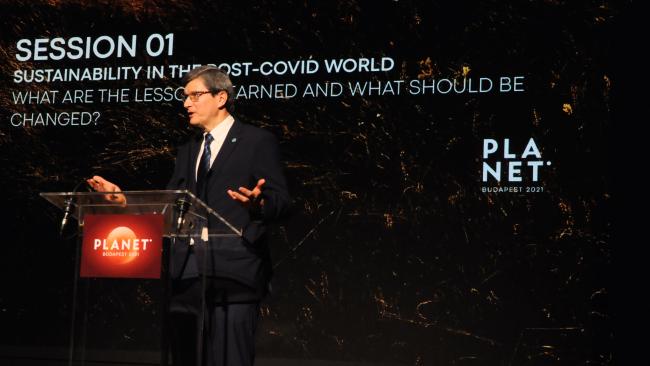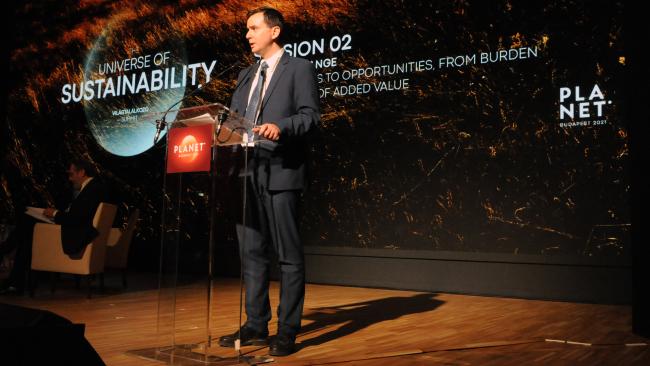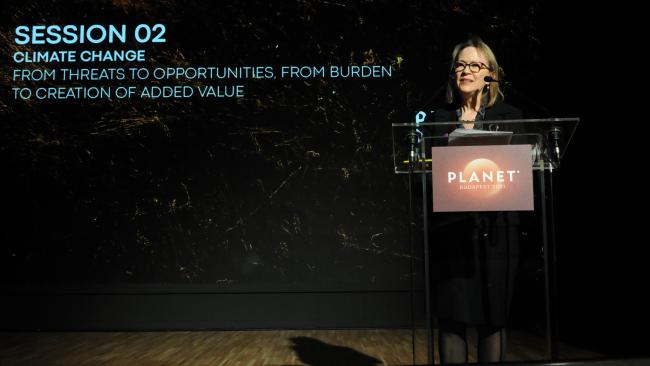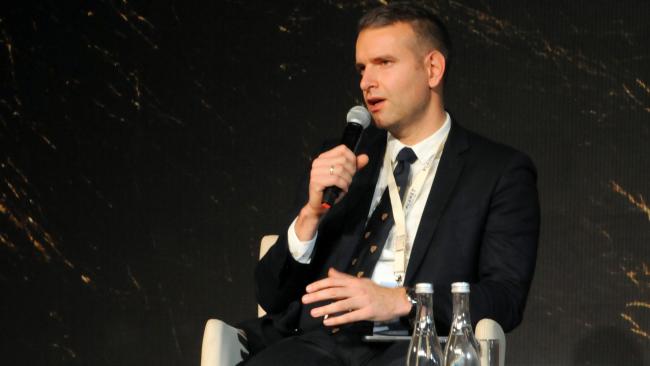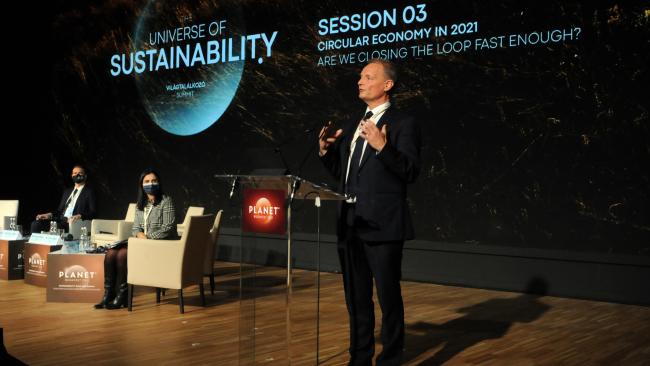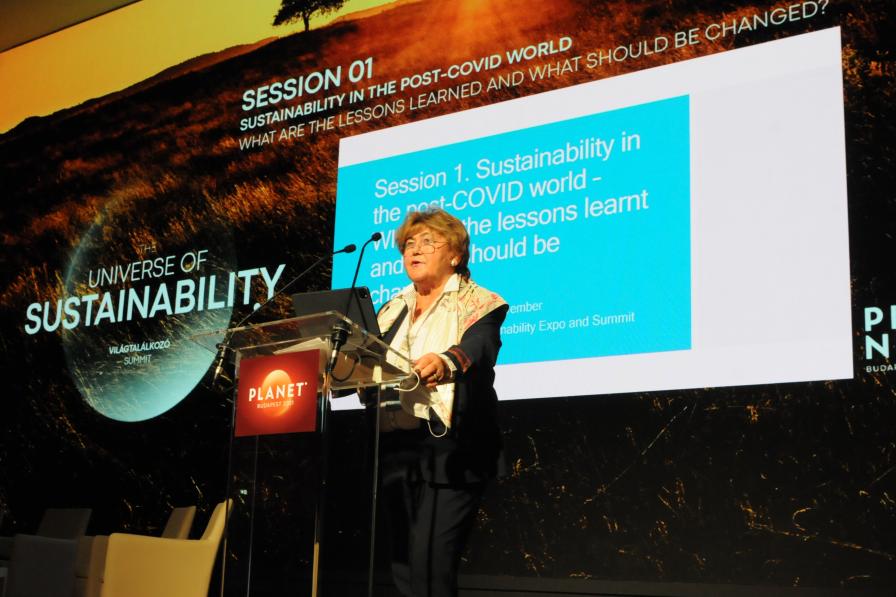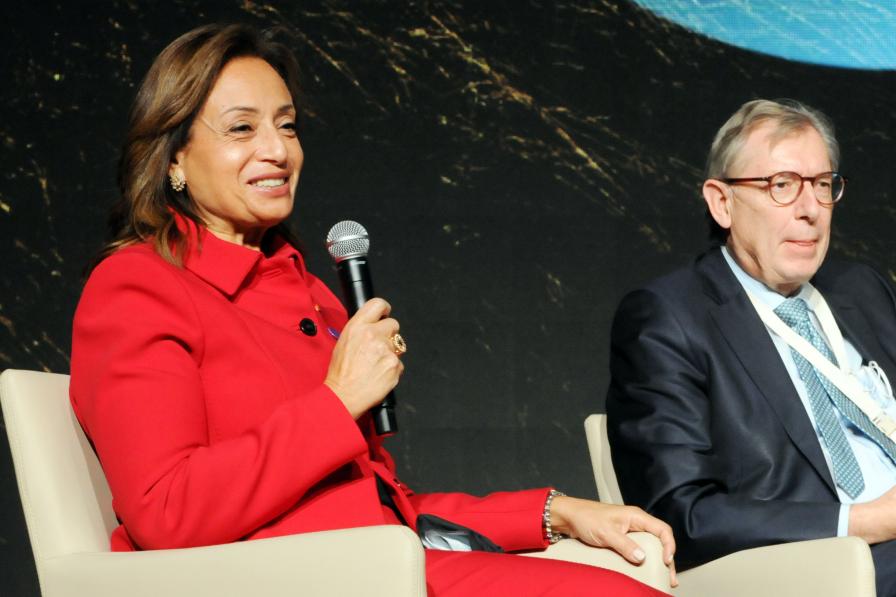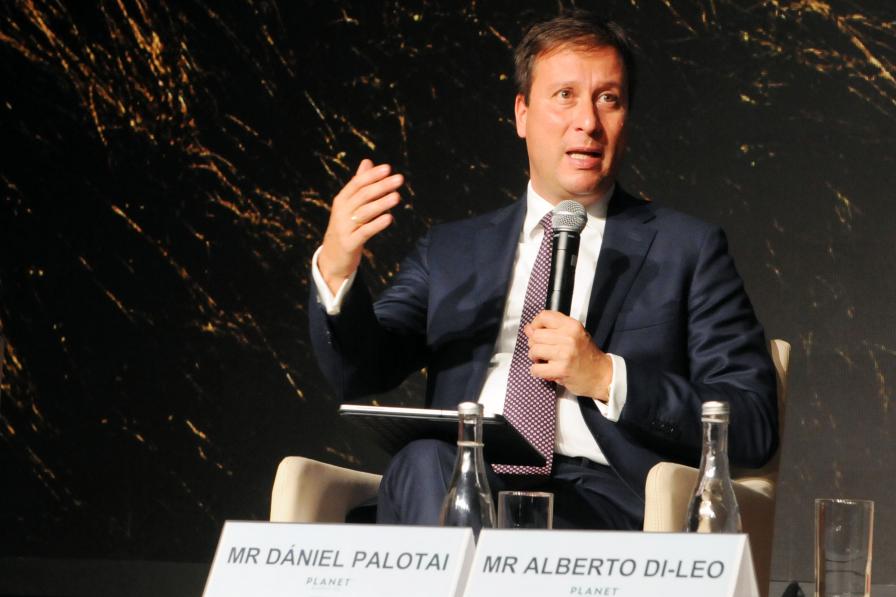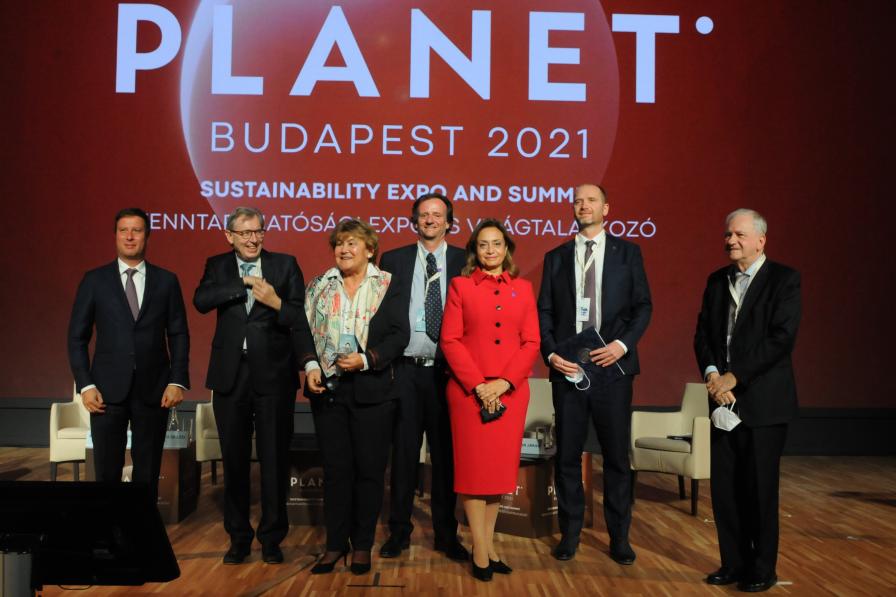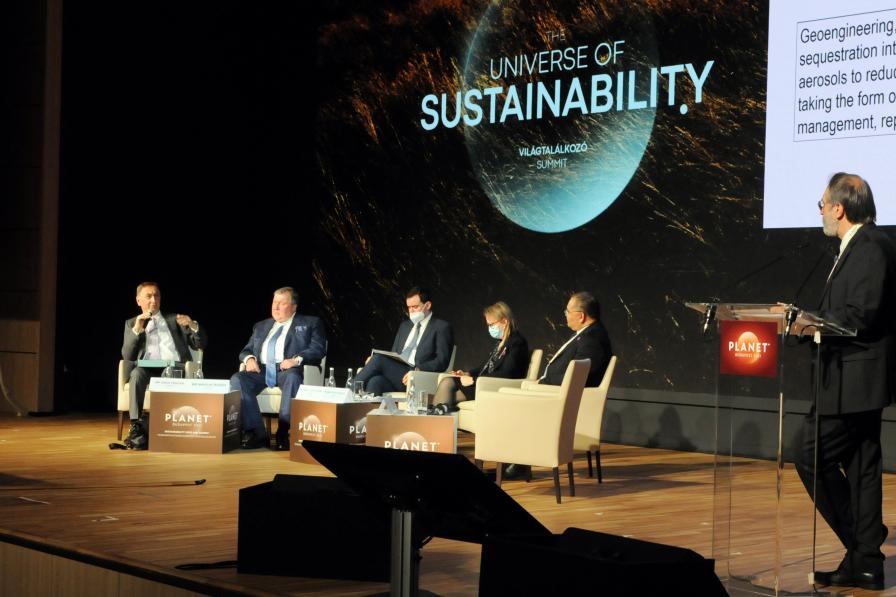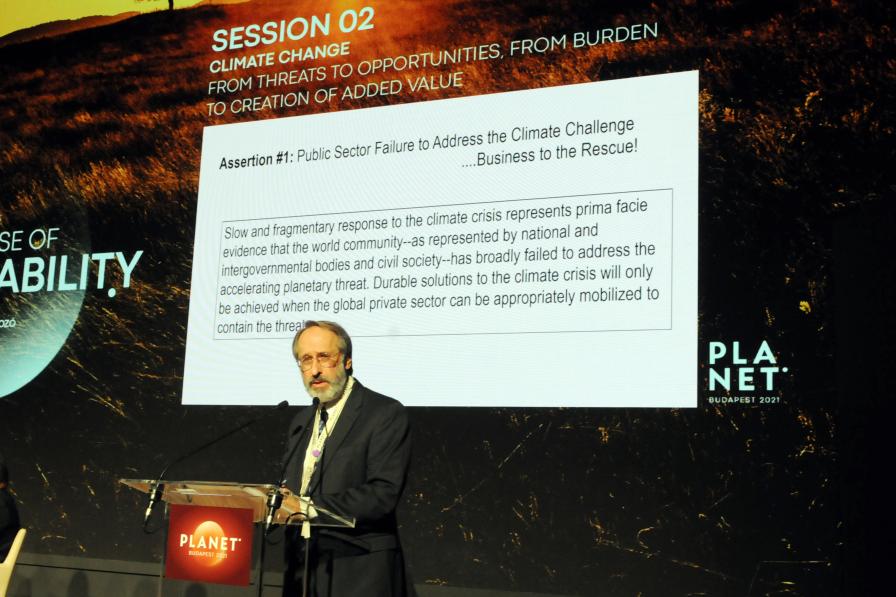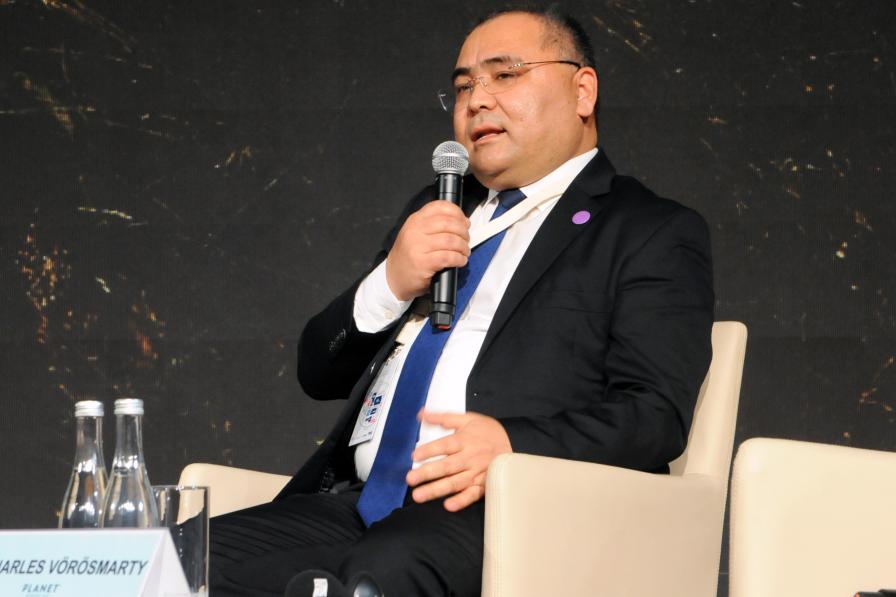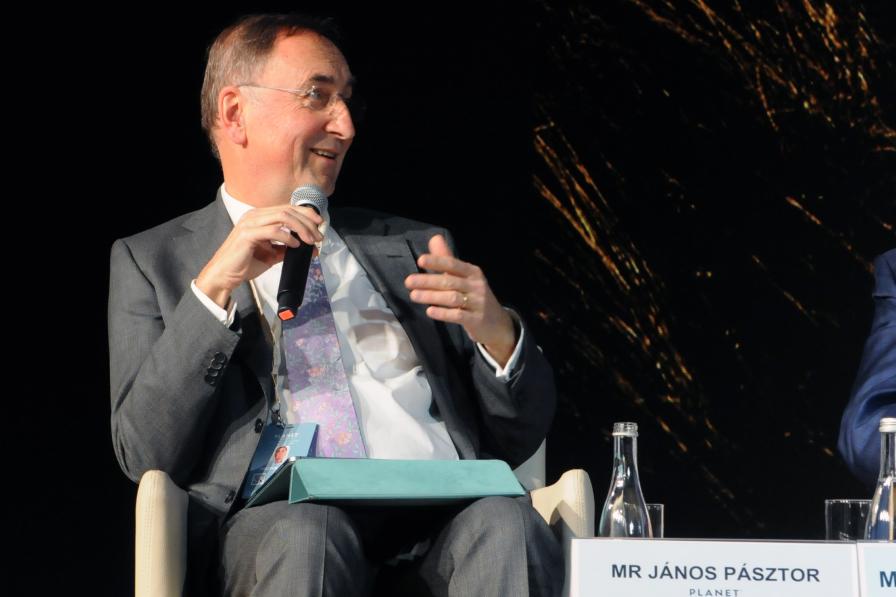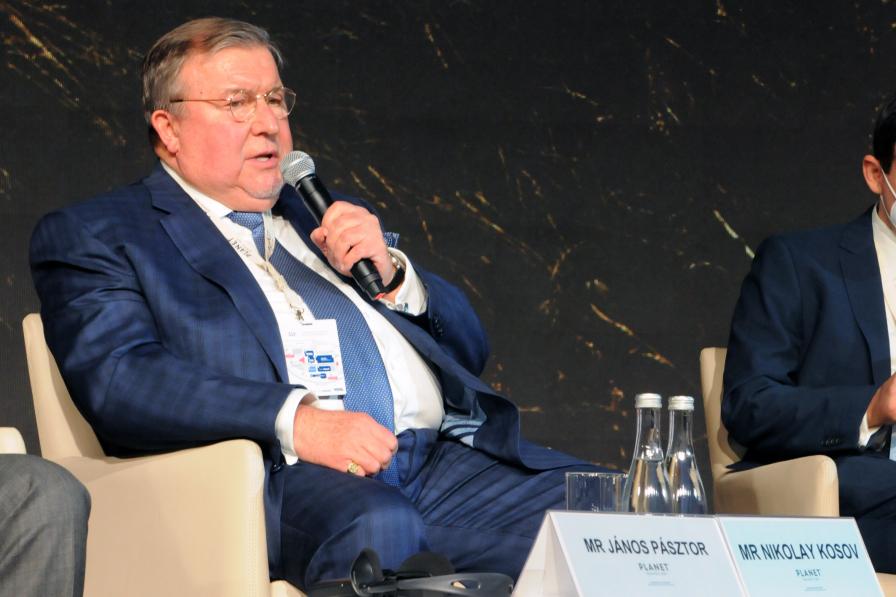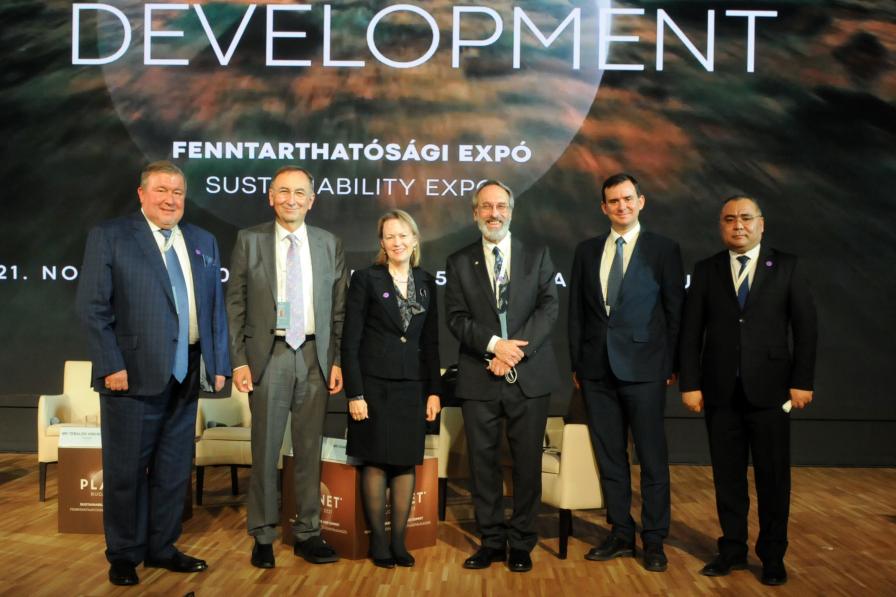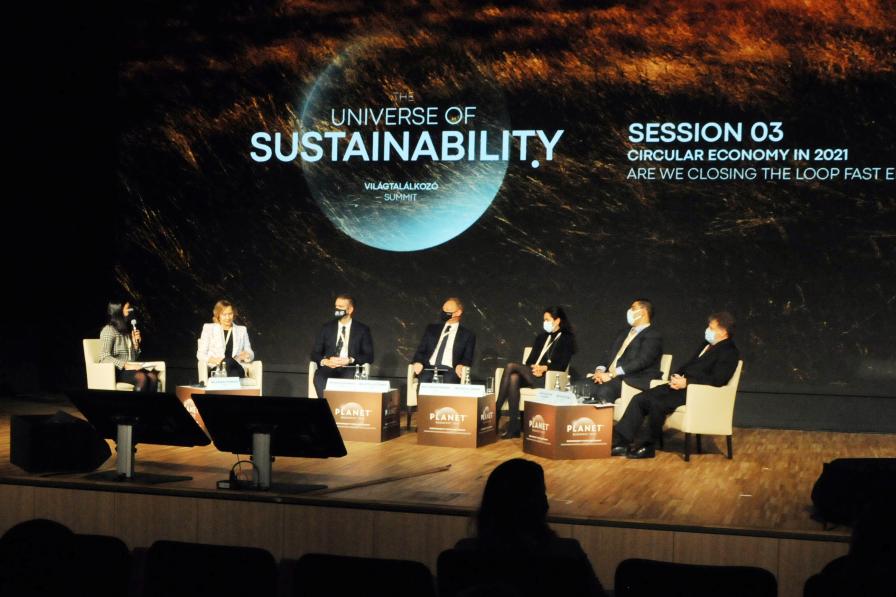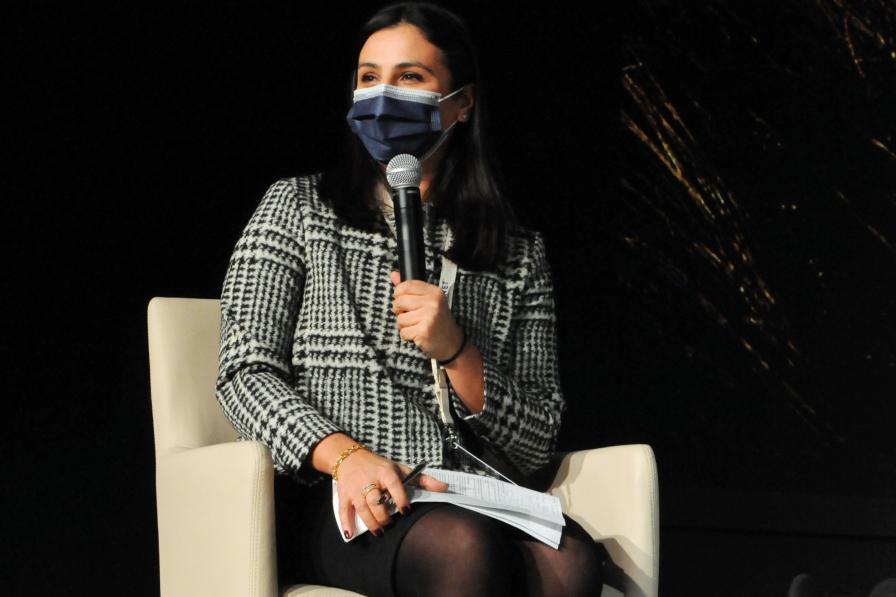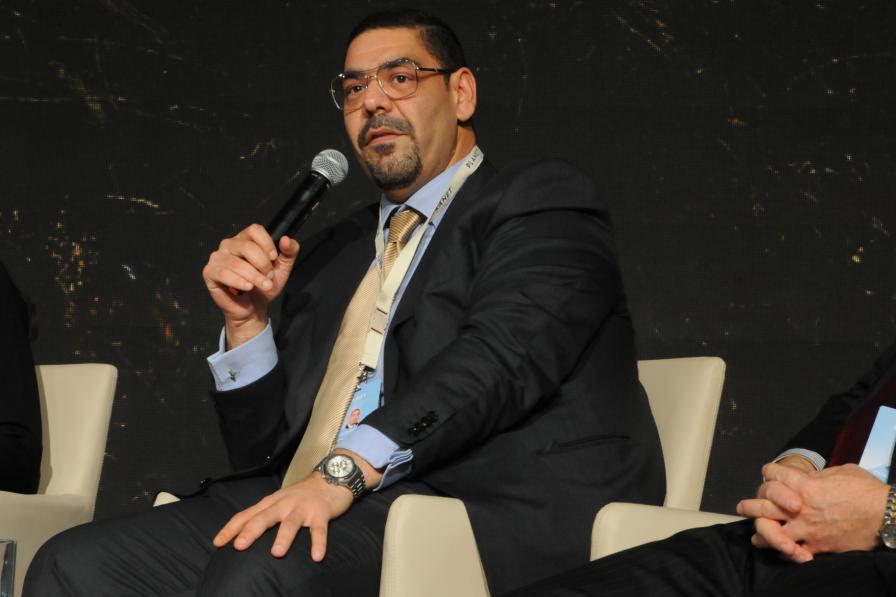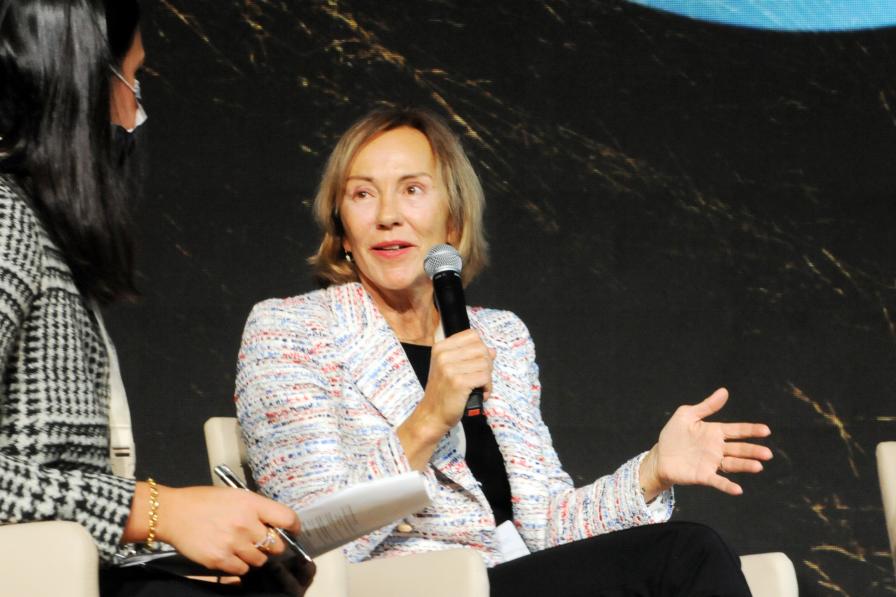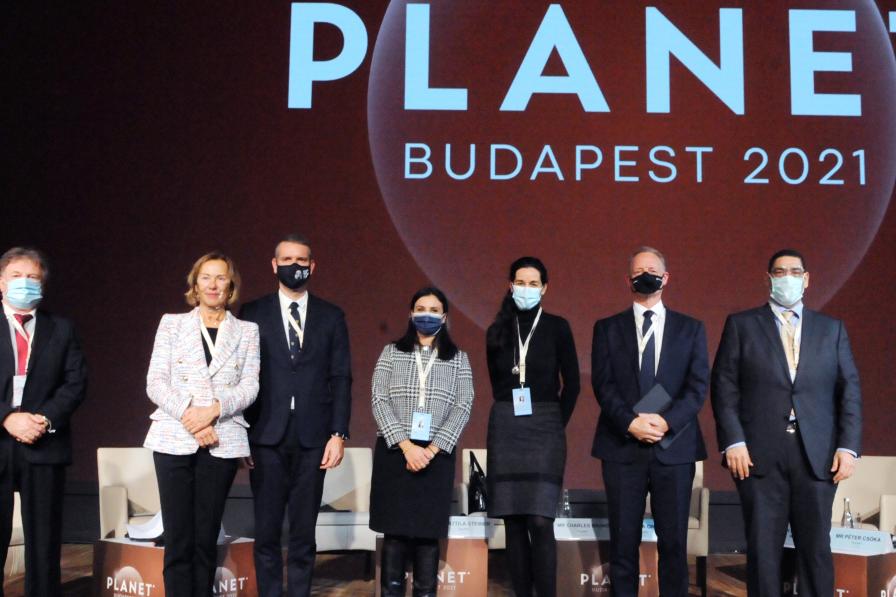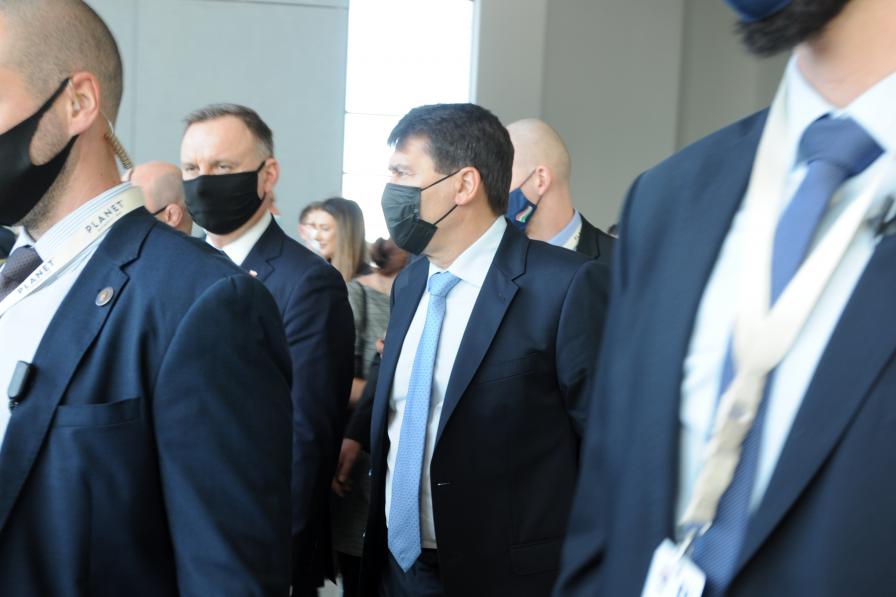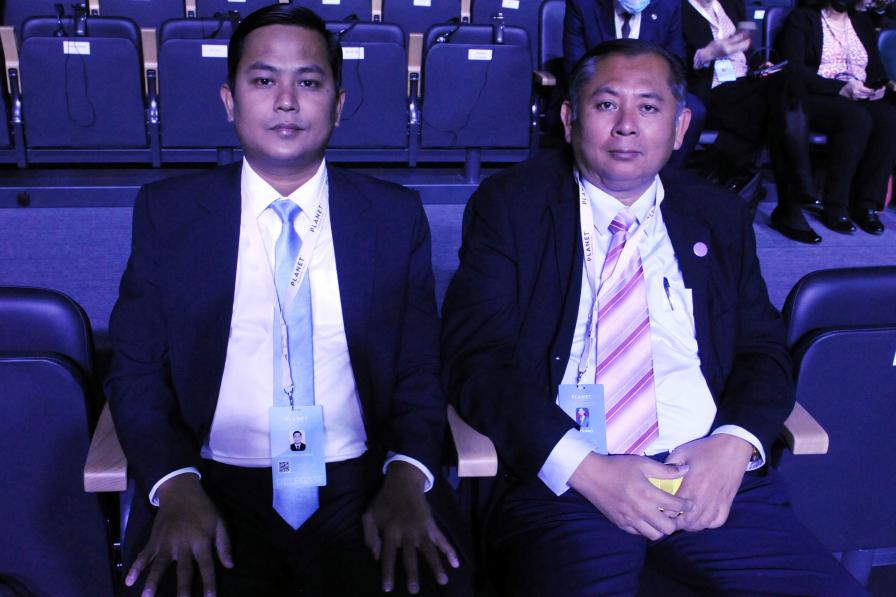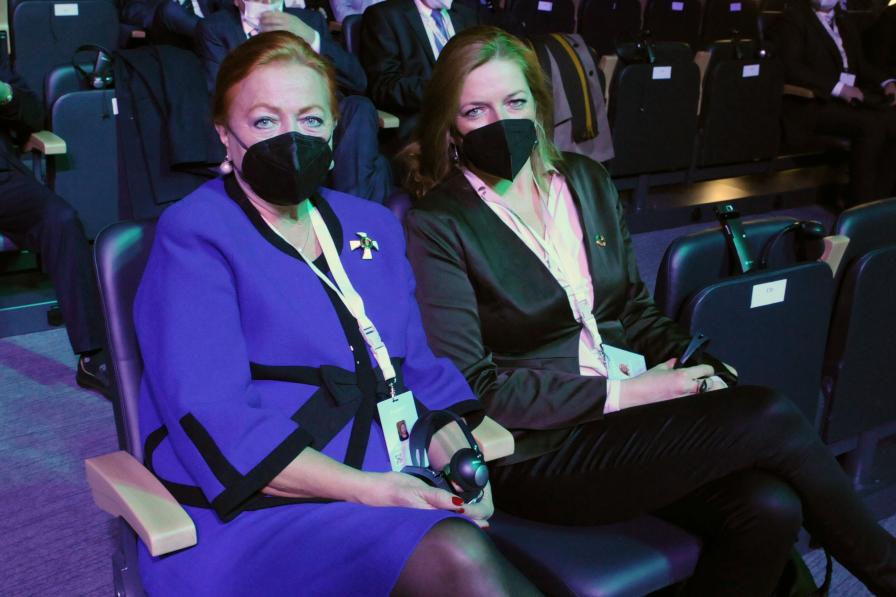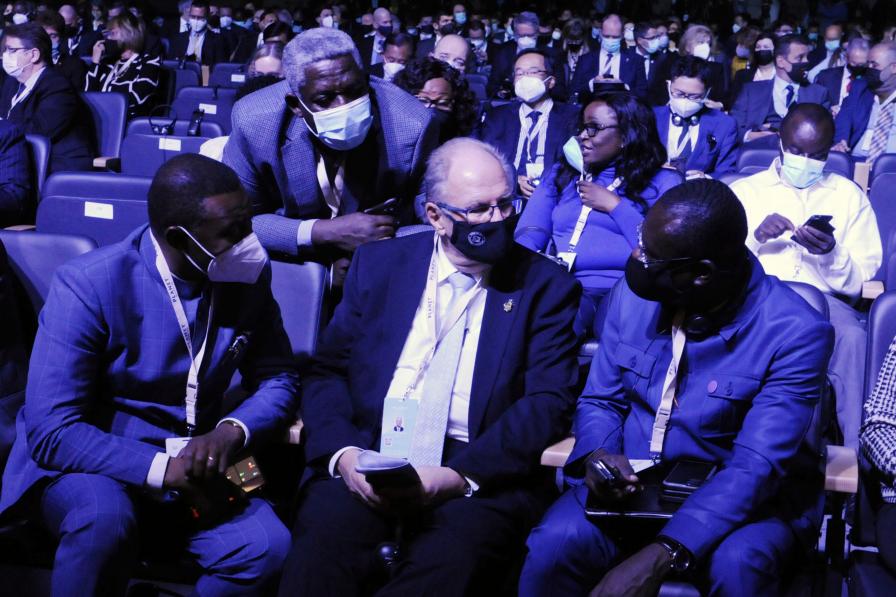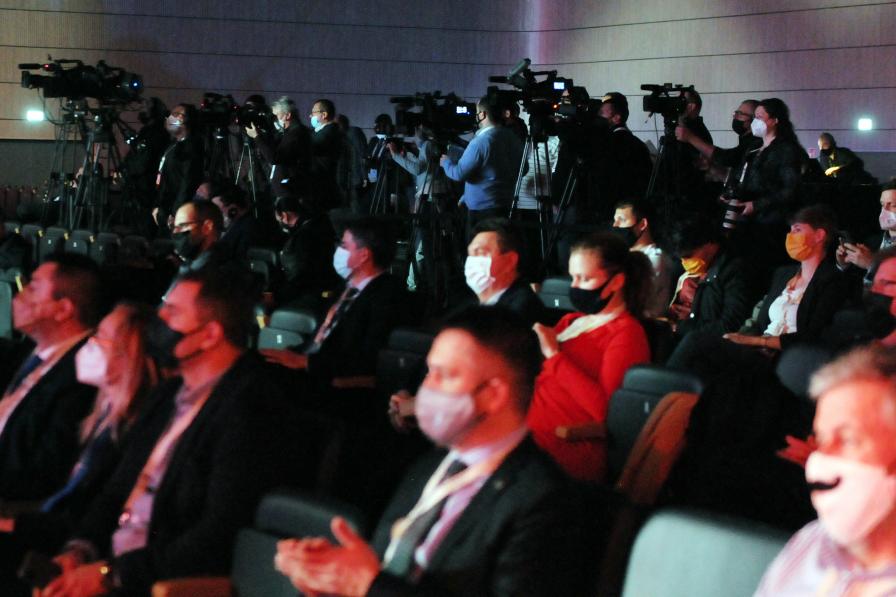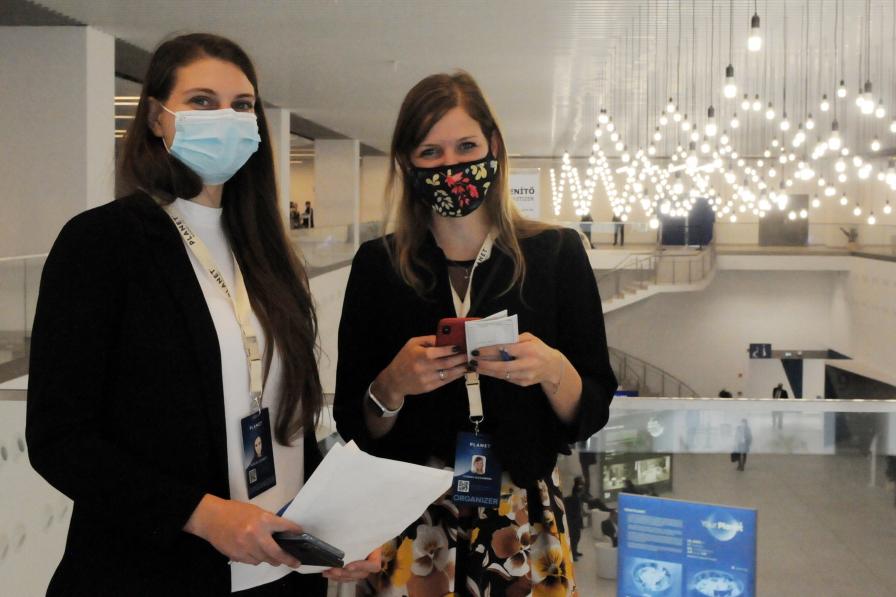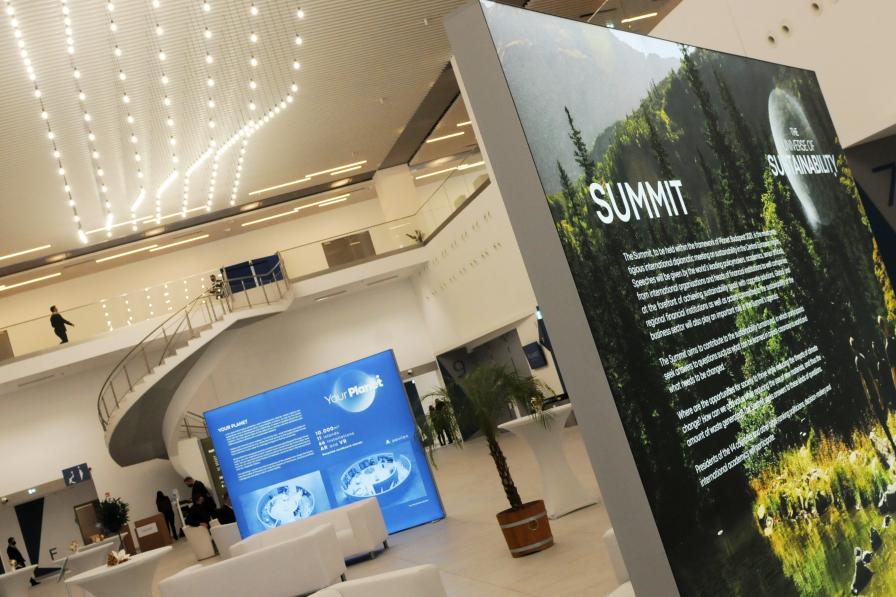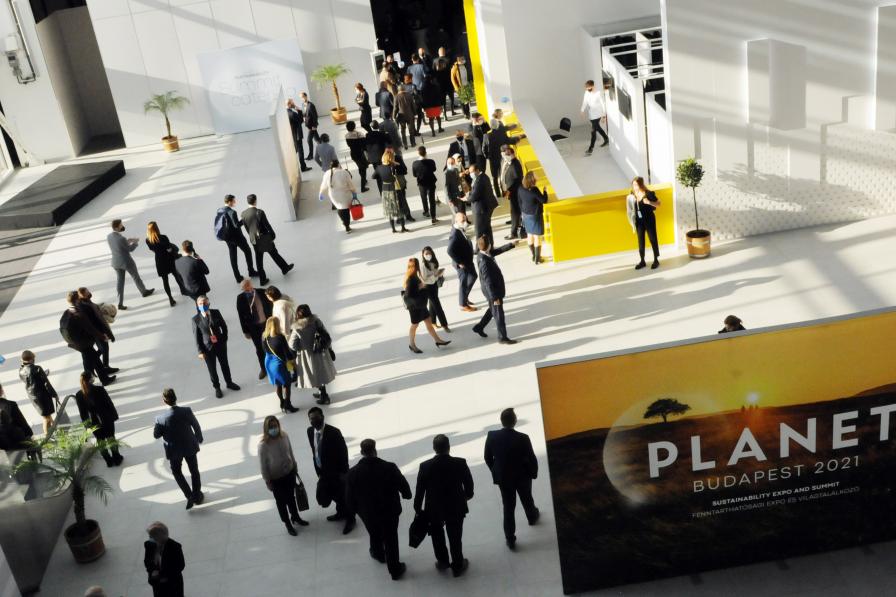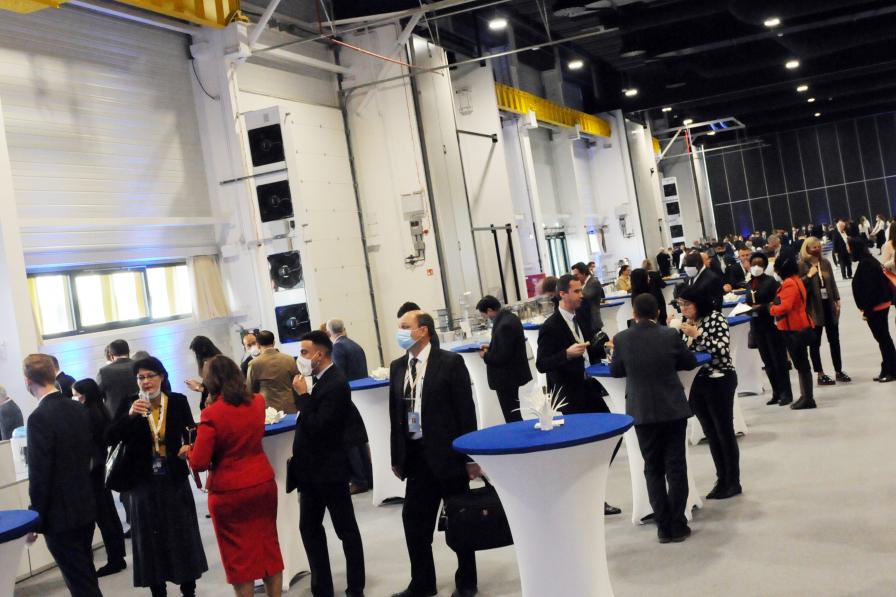The Planet Budapest 2021 Sustainability Expo and Summit's official opening on 30 November 2021 at the Hungexpo in Budapest, Hungary. The centerpiece of the event is the "Universe of Sustainability" Summit bringing together heads of state and government, decision makers, experts from international organizations and representatives of the scientific and business world and academia to discuss actionable responses to sustainable development challenges. The Summit opened with addresses by the Presidents of three Visegrád countries, UN Secretary-General António Guterres, Secretary-General of the Organisation for Economic Co-operation and Development (OECD) Mathias Cormann, and the Deputy Governor of Hungary's Central Bank, Csaba Kandrács. This was followed by three thematic sessions, on the post-COVID world, climate change, and the circular economy.
Hungarian President János Áder stressed the need to think globally but act both globally and locally; noted how Hungary has reduced CO2 emissions while improving GDP; and summarized Hungarian efforts to become carbon neutral, increase forest cover, and lead work on water, wastewater treatment, sustainable transport, and waste management.
Polish President Andrzej Duda emphasized Poland's presidency of the Visegrád Four (V4), cooperation efforts with the rest of Central Europe, and the need to ensure the post-pandemic global competitiveness of V4 companies in sustainable development innovations.
In a video message, Slovak President Zuzana Čaputová noted Slovakia’s 90% emissions reduction since 1990 and added that democracy must be protected in order to protect the planet.
In a video message, Guterres called for including refugees, marginalized people, and sustainable production and consumption in climate investments, applauding the efforts of Central European countries on these matters.
Cormann called for incorporating circular economy principles and nature-based solutions, rather than greenwashing, in climate investments. Kandrács noted the Hungarian Parliament had given the Central Bank a new mandate to align its work with the government's green mandate and sustainability policies.
The session on "Sustainability in the Post-COVID World – What Are the Lessons Learned and What Should Be Changed?" featured four keynotes and a panel discussion. Hungarian Agriculture Minister István Nagy said the pandemic has shown the importance of cutting food waste, streamlining supply chains, and improving food security.
Muhammad Ali Pate, Harvard T.H. Chan School of Public Health, summarized COVID-19 lessons on the need for: better planning for pandemics; improved health monitoring; revisiting existing global partnerships; considering new levels of global cooperation; and investing in health and human resources.
Irena Pichola, Partner, Deloitte, shared data from a Deloitte study showing that people recognize climate change as the greatest public health threat and that societies are ready for climate action.
Vladimir Olegovich Rakhmanin, Assistant Director-General, Food and Agriculture Organization of the United Nations (FAO), called for countries to: adopt the One Health approach; address human and animal health together; promote healthy diets and nutrition; and use digital technologies enriched with traditional knowledge.
The panel framed how the COVID-19 crisis has presented opportunities for global growth and key advantages in the Global South in rapidly digitalizing and innovating. Speakers also discussed the nexus between health and climate change and lessons learned from the present pandemic.
The session on “Climate Change – From Threats to Opportunities, From Burden to Creation of Added Value” featured two keynotes and a panel discussion. Holy See official Tebaldo Vinciguerra urged moving from addressing climate change symptoms to their root causes through promoting ethics, adopting a spiritual commitment to change, and moving from a throwaway culture to one of care and commonhold.
Mary Burce Warlick, International Energy Agency (IEA) Deputy Executive Director, said nationally determined contributions (NDCs) need to be turned into concrete action. She also urged rapid scaling up of technologies not yet commercially viable, noting early movers could become the energy giants of tomorrow.
Panelists agreed that durable solutions to the climate crisis require mobilization of the global private sector to contain the threat, but disagreed on what this should entail and how changing consumption patterns fits with businesses creating demand through advertising. They agreed climate change solutions cannot be solved by focusing on just one or two areas, such as geoengineering or land use management. As to whether climate change is crowding out other sustainability issues, panelists did not argue against this assertion, but rationalized that the climate crisis attracts attention due to the underlying energy connection — a lucrative market commodity.
The session on “Circular Economy in 2021 - Are We Closing the Loop Fast Enough?” featured two keynotes and a panel discussion. Hungary’s State Secretary for the Development of Circular Economy, Attila Steiner, said circular economy is crucial to climate action, and noted Hungary hopes to establish a completely new waste management system by 2023.
Charles Brand, Cluster Vice President for Europe and Central Asia, Tetra Pak Group, stressed his company’s commitment to decarbonize its materials and production processes and to drive recycling.
The panel discussed how stronger data, measurability, global standards, and reporting are needed to increase circularity. They also encouraged the idea of better engaging youth, local authorities, and policymakers to complement work being done by industry to re-use resources. Panelists additionally discussed how the lessons of nature’s circularity in water and forests might be further applied to other sectors, and what conditions would support the development of new business models and innovation toward a circular economy.
In addition to the Summit, the Planet Budapest event includes a business expo and two special interactive programmes: one targeting elementary and secondary school children, and the other the general public.
To receive free coverage of global environmental events delivered to your inbox, subscribe to the ENB Update newsletter.
